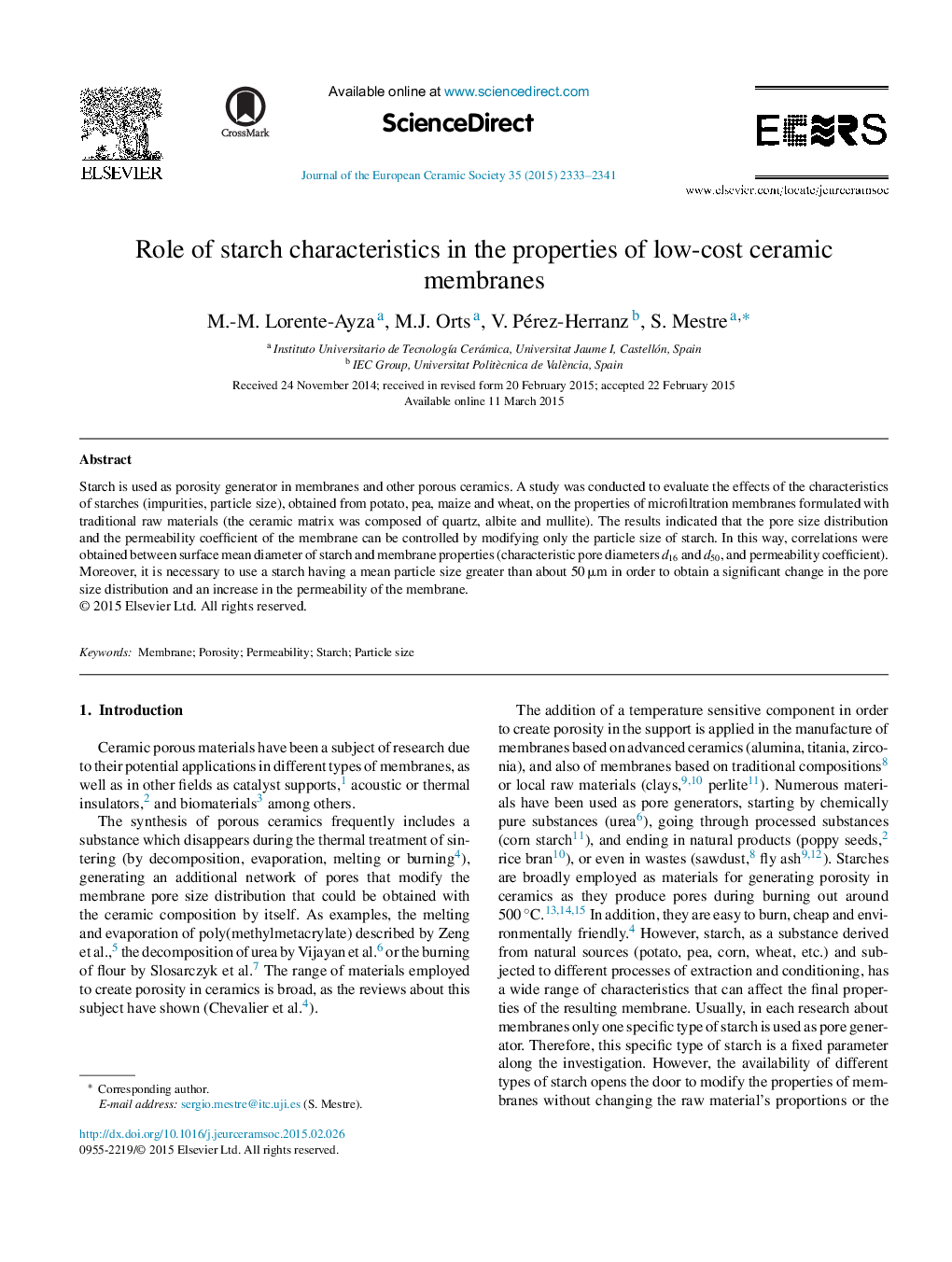| Article ID | Journal | Published Year | Pages | File Type |
|---|---|---|---|---|
| 10629565 | Journal of the European Ceramic Society | 2015 | 9 Pages |
Abstract
Starch is used as porosity generator in membranes and other porous ceramics. A study was conducted to evaluate the effects of the characteristics of starches (impurities, particle size), obtained from potato, pea, maize and wheat, on the properties of microfiltration membranes formulated with traditional raw materials (the ceramic matrix was composed of quartz, albite and mullite). The results indicated that the pore size distribution and the permeability coefficient of the membrane can be controlled by modifying only the particle size of starch. In this way, correlations were obtained between surface mean diameter of starch and membrane properties (characteristic pore diameters d16 and d50, and permeability coefficient). Moreover, it is necessary to use a starch having a mean particle size greater than about 50 μm in order to obtain a significant change in the pore size distribution and an increase in the permeability of the membrane.
Related Topics
Physical Sciences and Engineering
Materials Science
Ceramics and Composites
Authors
M.-M. Lorente-Ayza, M.J. Orts, V. Pérez-Herranz, S. Mestre,
